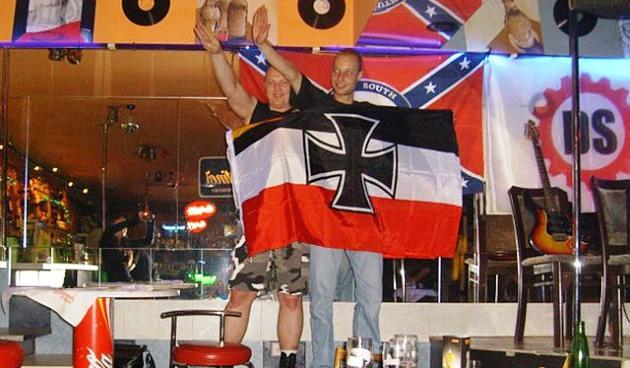Czech Supreme Administrative Court upholds ban on neo-Nazi demonstration last year

The Czech Supreme Administrative Court (Nejvyšší správní soud – NSS) has rejected a complaint concerning a ban on an assembly in the town of České Budějovice filed by neo-Nazi Pavel Matějný, who convened the event. The NSS said it was clear that the announced demonstration intended to threaten the Romani minority.
The event was part of a series of provocations called the "Czech Lion Tour" convened by the ultra-right group Czech Lions (Čeští lvi). A demonstration and march were announced for 14 September 2013 at the Máj housing estate.
The administrative department of the municipality banned the gathering, saying police officers had already had to intervene when lawbreaking occurred during four previous anti-Romani actions. The municipality said "the purpose of the assembly is to call for violence to be committed and for citizens’ personal, political and other rights to be either denied or limited because of their nationality. It could also lead to inciting hatred and intolerance and to violating the Constitution and the law in other ways."
Supreme Administrative Court says municipality was correct
In his suit challenging the ban, Matějný appealed to the principle of the equality of citizens before the law. In his view, state authorities are not allowed to limit people’s political rights, such as the right to assembly, just because of the opinions those people hold.
In a statement on the lawsuit, the municipality said it had not banned the event because of the "convener’s characteristics as a cadre", but that it had done so on the basis of an evaluation of all available information. The local authority had also proposed that Matějný change the route of the march to avoid the Máj housing estate, but he rejected the offer.
The NSS has now said the municipality was correct to ban the assembly. The court said officials did not act in error as they had accumulated sufficient background materials indicating the actual purpose of the event.
"Those background materials were evaluated and ther findings of fact are backed up by the file, they demonstrate that the assembly was to be a call to threaten the rights of the Romani minority and that it had to be considered that there would be a call to use violence and to otherwise violate the rule of law in the Czech Republic," the court said in its reasoning on the decision. The NSS has not yet published its verdict in full and has a month to do so.
Against Roma in Duchcov and Vítkov
Matějný, who adds the surname of his favorite political figure (Sládek) to his own name, also figured as an organizer in several other places, such as the town of Vítkov. He intentionally chose that town because it was the scene of an infamous arson attack on a Romani family of which four perpetrators were subsequently convicted.
"You know what’s going on all over the country. In Duchcov, in České Budějovice. We want to draw attention to the unfair sentences handed down in the Vítkov case," Matějný said at the time.
It was also Matějný who led a group of neo-Nazi street brawlers during an anti-Romani demonstration in Duchcov. "This isn’t just our march route, this is our town!" he shouted, after which the right-wing extremists attacked police officers there.
Matějný is also notorious from many other right-wing extremist events in the Czech Republic, such as the Workers Social Justice Party (DSSS) meeting with German neo-Nazis. He was photographed giving the Nazi salute while holding the flag of the Nazi Third Reich with an iron cross at an event called "The W.P. Officially Unofficial International Conference of Nationalists" (see photo above).
That event was convened by neo-Nazi Jaromír Pytel. He was one of those who helped organize one of the many anti-Romani marches in České Budějovice last year.